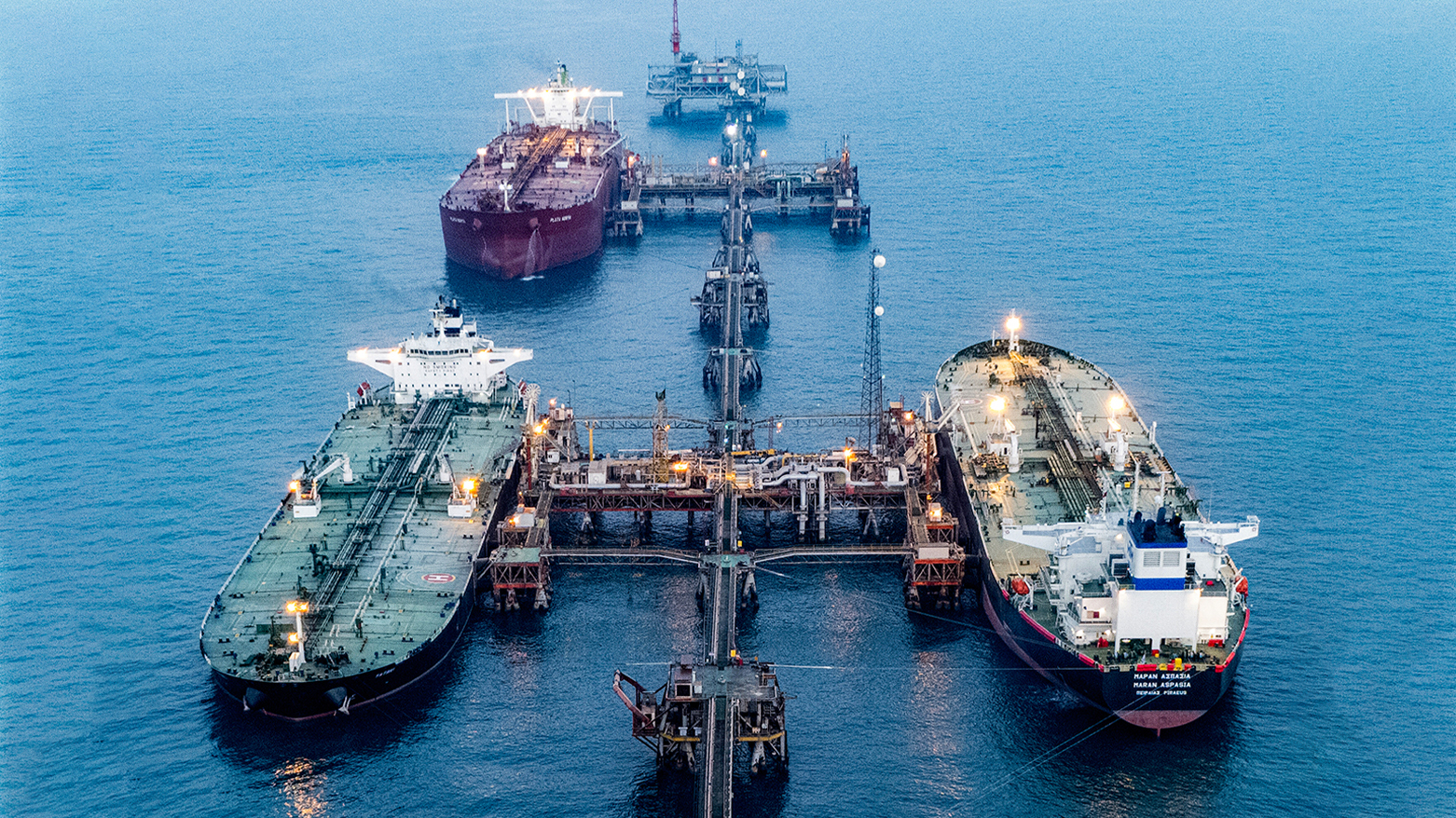Iraq Rejects U.S. Allegations of Aiding Iran's Illicit Oil Trade
Iraq denies U.S. smuggling allegations even as its navy seizes a tanker suspected of illegal activity. The denial comes amid U.S. sanctions on a vast Iranian network and internal warnings that smuggling threatens Iraq's economy.

ERBIL (Kurdistan24) – Mounting suspicions over Iraq's alleged role in a scheme to smuggle Iranian oil in defiance of U.S. sanctions have been met with a firm denial from Baghdad, which is now demanding concrete evidence to substantiate the serious accusations linking an Iraqi businessman to a network that funnels revenue to Iran's Islamic Revolutionary Guard Corps (IRGC).
These suspicions have been growing and intensified after the United States imposed sanctions on an Iraqi businessman named Salim Ahmed Saeed, who is accused of smuggling Iranian oil and blending it with Iraqi petroleum. On Friday, Ali Nizar, the acting Director General of Iraq's State Organization for Marketing of Oil (SOMO), did not acknowledge the claims. Instead, he portrayed Iraq and its merchants as being above any such suspicion or act. Nizar stated that the existence of a location for smuggling Iraqi oil and blending it with Iranian oil has not been substantiated with evidence, and therefore, proof of these suspicions must be presented.
The official Iraqi denial comes in direct response to actions taken by the U.S. Treasury Department, which announced on July 3rd of this year that Salim Ahmed Saeed and several other individuals had blended Iranian oil with Iraqi oil. According to the U.S. Treasury, after this oil was smuggled and sold, the proceeds were returned to the Quds Force of the IRGC. The department had indicated that, through the Office of Foreign Assets Control (OFAC), it has taken measures against the networks involved in the transport and sale of Iranian oil worth billions of dollars, with a portion of the revenue being returned to the IRGC's Quds Force.
Washington has cast a wide net in its efforts to dismantle the alleged operations. Late last month, the U.S. Treasury Department imposed economic and financial sanctions on a total of 115 individuals, companies, and vessels accused of facilitating the sale of Iranian oil.
In a report, the Treasury Department indicated that this extensive network was supervised by Mohammad-Hossein Shamkhani, the son of Ali Shamkhani, who serves as a senior advisor to Ali Khamenei, the Supreme Leader of the Islamic Republic of Iran.
Reinforcing Washington’s hardline stance, U.S. Treasury Secretary Scott Besent announced on July 3, 2025, that his department will continue to target Iran's revenue sources, maintain economic pressure, and prevent Tehran from accessing financial resources.
Adding to the domestic pressure on Baghdad, the Iraqi Navy seized a Liberian-flagged oil tanker last Wednesday near the loading platform of the Basra oil port after discovering it did not possess official documentation. According to security sources, the tanker was loaded with approximately 250,000 tons of fuel oil and is suspected of attempting to smuggle the cargo out of Iraq illegally.
The sources indicated that investigations are underway to determine the circumstances of the incident, while legal action has been taken against the tanker's crew as part of what is described as Iraq's efforts to combat oil smuggling and protect its national resources.
A few days ago, Iraq's state oil marketing company, SOMO, announced in an official statement that a recently leaked document contained technical notes on tracking oil tankers.
However, the company denied that any smuggling or oil blending was taking place, stressing that the document had been misinterpreted and that its activities are under constant surveillance in coordination with security agencies.
This comes as local and international reports have warned of a complex smuggling network that generates massive profits, reaching billions of dollars annually, for local and regional entities. This is reportedly done by diverting subsidized oil and exporting it out of the country through southern ports, using methods that include manipulating the marine tracking system and forging documents.
Local economists have warned that the continuation of these operations could subject Iraq to international sanctions, emphasizing that oil smuggling poses a serious threat to the country's economic stability and international reputation.
Adding a significant layer of regional political context, a source told "The Arab Gulf States Institute in Washington" on July 3rd that a stark financial contrast exists within Iraq's own policies. The source stated that while the Iraqi federal government has cut the budget and salaries of the Kurdistan Region and has imposed economic sanctions on it since 2014, Iraq's budget continues to flow to Iran-backed militia groups that operate and conduct activities for Tehran's interests.